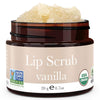We know that you are constantly making efforts to ensure you are as healthy as you can be. You're googling which fruits have the least sugar and scrolling through your Instagram feed religiously for new workout inspo. Whether it be eating those leafy greens, or getting an extra walk in with the family – all of these things add up to something much bigger. And let’s be real, we know we feel our best when we are eating right, staying active, and not so well acquainted with the local pizza delivery guy. But how does health go beyond what meets the eye? What connection exists between how you feel and how you look? We’re here to tell you that gratitude and your health are absolutely interconnected.
The link between gratitude and your health.
Eating right and incorporating physical activity into your routine is so beneficial (for real, you’re doing amazing sweetie!). However, other elements in your life can also have a serious impact on your health. Have you ever noticed that when you’re feeling down or stressed, your skin doesn’t look so glowy? Your energy levels aren’t the greatest? You feel like no amount of sleep is ever enough? That’s because how you feel emotionally on the inside totally reflects itself on the outside, babe.

This is why the self-care movement has been so popular recently. If you've ever thought of prioritizing yourself more, check out one of our recent posts about how to start your self-love journey.
The popularity self-care has garnered comes with no surprise. Caring for our emotional well-being as much as we do for our physical well-being is completely necessary. Perhaps you’re feeling like you need some extra time to read more, meditate, or journal these days. Or maybe, you’re just not sure where to get started to take better care of yourself inwards. If so, that’s totally okay. Grab your favorite drink, settle in, and have a read below to find out more about gratitude and your health.
What is gratitude, really?
If you google the word “gratitude,” a commonly used definition immediately pops up. Gratitude is typically defined as being thankful. It is also described as showing appreciation for the kindness and returning that kindness. In some cases, people even describe it specifically as a “warm” and "fuzzy" feeling. Most interestingly though, you’ll also find that the following sentence repeats itself quite often in your search: “The person who feels gratitude is thankful for what they have and does not constantly seek more”.
We really felt the need to think about that last line. There is no doubt that we live in a world where we are constantly bombarded with images of material possessions. Or where we feel a constant pressure to acquire and accomplish more. All of this constant stress makes it increasingly easy to get distracted. Not to mention, forgetting about practicing gratitude and your health.
If you think this may be happening to you, ask yourself this. When is the last time you gave thanks for the things and people you have in your life today? After all, you likely once prayed or hoped for these things or people that you now actually have around you.
How can I show or feel more gratitude?
We definitely are not here to (and can’t) tell you how to feel. Feeling and showing gratitude is something that takes time and serious practice! It’s essentially no different than training for a 5k run. You won’t feel like doing it some days, and you’ll likely lose sight of why it’s so important to you at times. In fact, you’ll probably have moments where you waste more of your energy complaining about the run rather than putting it into actually running. And guess what? It’s okay because that is all apart of the process.
Don’t sweat it (no pun intended). There are simple, easy ways to feel and show more gratitude on a daily basis – no running gear required. Below are a few very simple ideas you can start incorporating into your routine as soon as, well - now.
Journal on a daily basis.

Write. Even if you only have 10 minutes to spare while your kids are still asleep in the morning. Or maybe you have a lunch break during your workday where you could spare a few minutes. Regardless of where you decide to make time in your day, journaling is a great way to train your mind to feel more grateful for the things around you.
Think of journaling as a way to actualize the things you want to accomplish, but also as a way to acknowledge what you have already done that day. Even if it was as small as *finally* folding that load of laundry. Think about it, now you can better enjoy your beautiful bedroom space.
Many grateful people credit journaling to starting their day off on the right foot and forcing themselves to appreciate the good that is happening around them. The key is to train your mind to see this good. What happens is that the more often you take the time to write it out, the more real it becomes. And the rest leads to daily gratitude, as well as an improved feeling of health and happiness.
Do one small kind thing, every day.
This sounds so much harder than it actually is.
For real though, you do not have to spend a dime or carve out an excessive amount of time from your day to accomplish this. In fact, doing a kind thing does not have to be complicated at all. What’s more, it is just as gratifying for you as for the person on the receiving end of the act.
It doesn't matter whether you take a few minutes to check in with your strongest friend or hold the door open for a stranger. Doing kind things inevitably has a domino effect.
Making even one person feel cared for and grateful for your actions can in turn nudge them to do something kind as well. You’ll notice that once you start making this a habit, doing these small but kind things becomes second nature. That warm and fuzzy feeling we talked about at the beginning of this blog? Well, you’ll feel it.
Show gratitude at the end of every day.
Not to be extra, but this one here is really life-changing if you give it a fair shot. Every night, before you close your eyes to catch some z’s, think of three things you are grateful for that happened that day.
It could be as simple or trivial as the fact that you didn’t run out of gas while you were rushing to that 2 p.m. meeting. Or maybe you had leftovers in the fridge which allowed you to spend more time with your kids rather than cooking. Regardless of what it is, doing this short exercise in your mind every night, again has that domino effect.
You’ll notice that thinking of a few things will trigger a slew of other ideas in your mind of what to be grateful for. It’s true. The trick is that even on your worst day, you have to train your mind to appreciate what did go well. For instance, maybe you didn’t get that promotion, but did you make new contacts? Maybe you couldn’t make it in time for your yoga class. But were you able to breathe deep when you walked into your home after work?
We get that sometimes feeling down or disappointed is warranted. In fact, it’s human and totally normal. But if you want to make the process upwards easier, this can help. Take the time to show gratitude for even the smallest of things no matter what the day threw at you – every single night.

How often should I feel grateful?
This is a pretty subjective question. You might think to yourself, some people surely feel grateful more often than others. And you’re right, this is true. But only because these people have made the effort to feel gratitude on a frequent basis. And you can totally become one of these people too!
It is truly up to you to determine how often you want to feel grateful. It all depends on how often you decide to take a minute, breathe deep, and think of the positive around you. The great thing about making gratitude a priority is that it forces you to reflect inwards and makes you feel happier.
Happy people are healthy people, therefore we are sure by now that you’ve noticed the crucial link between gratitude and your health.
How will gratitude improve my health?
As mentioned above, practicing gratitude can do wonders for your health. It can allow you to put what's really important into perspective, and ditch the negative narratives in your mind.
Additionally, prioritizing thankfulness and focusing on all of the great things happening in your life will have a direct impact on your mood, stress levels, and ability to cope with everyday issues. This alone will have a myriad of benefits for your health.
To go a step further, studies have even shown that practicing gratitude improves your health. This is because the process of showing gratitude improves our relationships, lessens depression, and improves motivation. To keep it simple, we can't stress enough that showing gratitude works wonders for your overall mental well-being. And we think this definitely makes it worth practicing.

Final words of wisdom...
If you’re new to practicing the art of showing gratitude, show yourself a little grace. It can take a significant amount of time to shift the way we think. Especially if we have been thinking in a counterproductive way for a while. The major key is to catch yourself when you’re spending too much time thinking of what’s wrong or bad in your life. Master this and you’ll be well on your way to feeling grateful every day (or at least much more often than you do now).
Seriously – by incorporating only one or two of our ideas above, we are certain you’ll get the hang of it. And in no time, you’ll wonder how you ever got through a day without taking a moment to realize how lucky and blessed you really are.
Now if you were already an avid gratitude expressing goddess before this article came along, congrats! We hope we solidified the benefits that being grateful has on your health. Or maybe we even gave you a few new ideas to incorporate into your gratitude practice.
So whether you belong to the latter group or the former, we encourage you to stay grateful and healthy – because you truly do deserve it after all.




















































































join the conversation